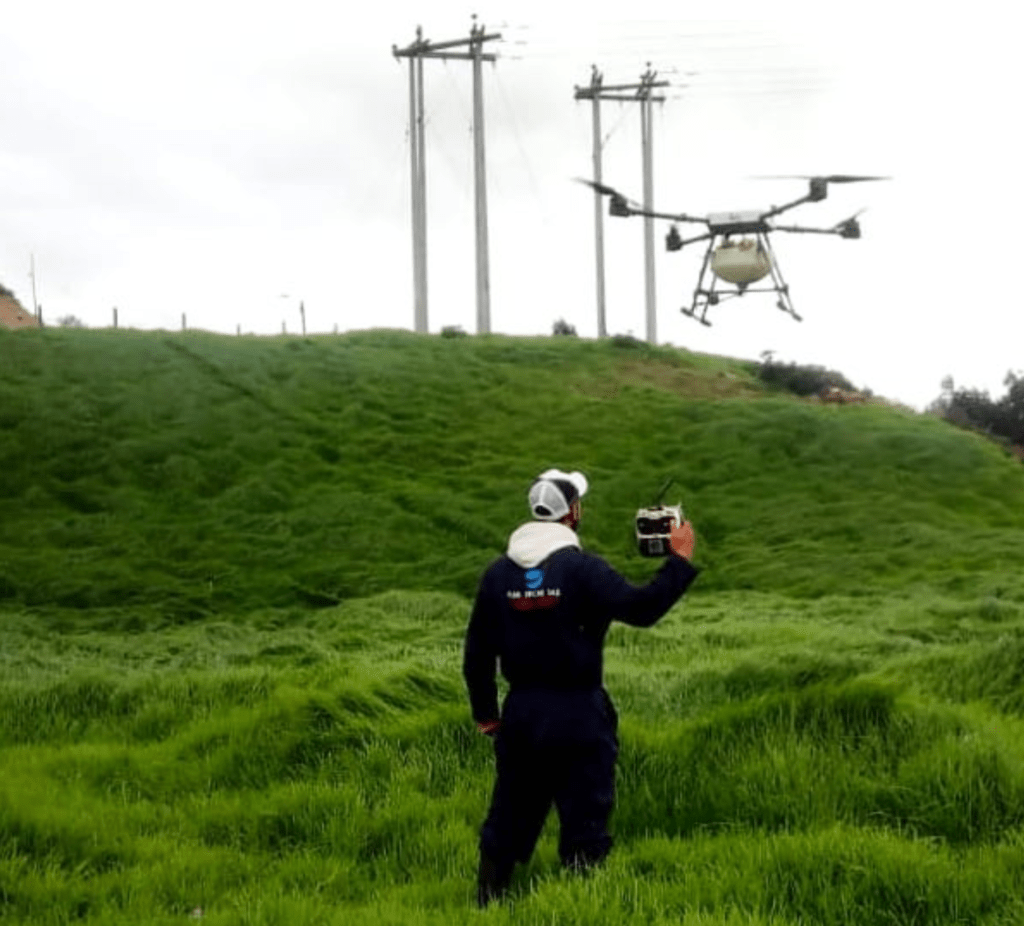We’re not quite at the stage at which drones are taking an active role in day to day agriculture. Despite hardware releases from DJI and other manufacturers with a view to autonomously sowing seeds and dispensing pesticides, most drone applications on the farm are more passive in nature: field mapping, crop health checks, that sort of thing.
However, the Colombian government is bucking that trend, using drones in a much more active manner in a bid to dismantle the cocaine trade.
Dismantling the cocaine trade from above
According to various reports, local authorities in Colombia are attempting to use unmanned aircraft loaded with herbicide to seek and destroy illegal fields of coca.
According to the BBC, President Iván Duque favors the use of drones because they are sensitive enough to prevent damage to neighboring crops.
Colombian authorities have teamed up with drone company Fumi Drones SAS, who are providing equipment and training police to use it.
Read more: What Venezuela’s Purported Assassination Attempt by Drones Means to an Industry Already Under Attack
Fumi Drones SAS director German Huertas confirmed that test runs had seen a 90% success rate of killing off coca in Colombia’s Narino province. The trial combined 10 23kg (50lb) drones and the delivery of plant-killing chemical glyphosate.
Earlier in the summer, the US Office of National Drug Control Policy released a report highlighting the growth of coca growing in Colombia, which has reached an all-time high. Data shows an 11% increase from 465,000 acres in 2016, to 516,000 acres in 2017.
Authorities in Colombia can expect retaliation from farmers and people whose livelihood relies on supporting the international demand for cocaine. There are also concerns over the use of a technological fix for what is essentially a political problem.
Investing in alternative livelihoods for those who depend on coca cultivation might be a better solution for the long term.
“It’s a short-term solution,” said Richard Lapper, associate fellow in the US and Americas programme at the Chatham House think tank. “Ultimately, there’s a lot of international demand for cocaine.”
Malek Murison is a freelance writer and editor with a passion for tech trends and innovation. He handles product reviews, major releases and keeps an eye on the enthusiast market for DroneLife.
Email Malek
Twitter:@malekmurison
Subscribe to DroneLife here.
